5 Common Car Noises And How To Fix Them
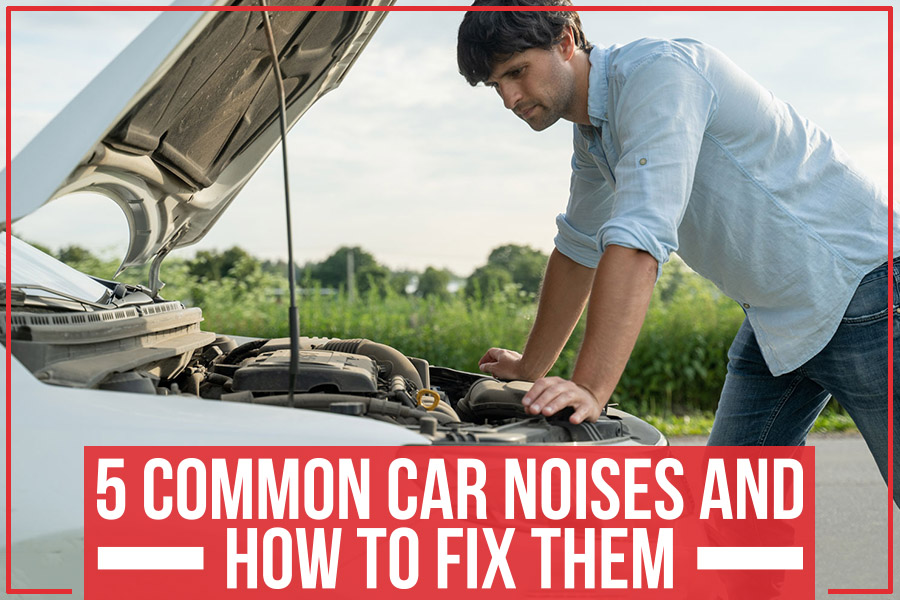
Key Takeaways:
- If your car makes weird noises, it may be an indication of a bigger problem.
- You can fix most of these problems yourself with a little knowledge and the right tools.
- However, some car problems are more serious and require the help of a professional mechanic.
- Feldman CDJR is a trusted dealership that can help you with all your car needs. Schedule your service to keep your car in tip-top condition.
When your car has a problem, the first indication of it will be an unfamiliar sound that you hear while driving. These sounds can be difficult to describe, but if you pay close attention, you can identify the source of the noise. This is how your car communicates with you and indicates something is wrong.
To help you out, we’ve compiled a list of common car noises and what they could mean. With this knowledge, you’ll be able to diagnose the issue better and get your car back to running smoothly.
1. Grinding or Squeaking When Braking
A grinding or squeaking car noise when you brake indicates that your brake pads are wearing thin and need to be replaced. The pads create the friction necessary to stop your car, so taking care of this issue as soon as possible is important.
Several issues can cause this, but the most likely culprit is worn-out brake pads. When your brake pads wear down, they can begin to make a noise as they rub against the rotors. Please don’t attempt to fix it at home; take your car to a professional mechanic!
2. Rattling Under the Hood
Rattling car noise from under the hood indicates something is loose. A heat shield or other component is not securely attached and must be fixed.

3. Hissing
Your car produces a hissing sound when there’s likely a leak in your car’s cooling system. This could be a coolant hose or some other component that has developed a leak. It’s not an easy fix and requires assistance from a professional mechanic.
Related: How to tell if your car radiator needs to be fixed
4. Whining or Humming While Accelerating
Suppose you hear a whining or humming noise when you accelerate. In that case, it could indicate that your car’s engine is not getting enough power. Several issues can cause this, but the most likely culprit is a problem with your fuel system. If your car’s fuel system is not working properly, it can cause a loss of power and an accompanying car noise.
5. Clicking When Turning the Steering Wheel
If you happen to hear a clicking sound when you turn the steering wheel, it could indicate that your car’s power steering system is not working properly. There’s likely a problem with the power steering pump. If the power steering pump is not working properly, it can cause a loss of power and an accompanying noise.
A clicking noise while turning could also indicate that your CV joint is damaged. The CV (constant velocity) joint allows the axle to move up and down as the suspension compresses. A clicking noise when turning is often caused by a damaged CV joint, which will need to be replaced.
Some Car Noises You Can Fix Yourself
There are a variety of strange and sometimes worrying noises that your car can make. However, many of these sounds are fairly harmless and can be easily fixed with a little DIY know-how.
- If your car makes a clicking noise when you turn the wheel, you likely just need to add more power steering fluid.
- Suppose you hear a rattling noise when you’re driving over bumps. In that case, it’s probably due to loose change or other small objects rolling around in your console or glove compartment.
- If your car begins to make strange sounds after you’ve been driving for a while, it’s likely that the muffler has become clogged with debris and needs to be cleaned out.
So next time your car starts making weird noises, don’t panic. Chances are good that you can fix the problem yourself without having to call a professional mechanic.
What’s the Reason Behind Car Vibrations?
Have you ever wondered why your car vibrates when you drive it? There are a few different reasons why this happens, but the most likely explanation is that your tires are out of alignment.
When tires are out of alignment, they don’t make contact with the road surface uniformly. This results in friction, which causes the tires to heat up and eventually vibrate.
If you’re noticing that your car is vibrating more than usual, it’s time to check your tires. Ignoring the problem will only worsen, and it could lead to premature tire wear.
So next time you’re on the road, pay attention to any vibrations from your car. If you feel them, it’s time to get your wheels aligned!
Related reading: Ten Reasons Why Your Car Is Vibrating!
Prevent the Noises Before They Happen!
It can be pretty worrying when your car starts making weird noises. However, there are some maintenance tasks that you can do to help keep your car running smoothly.
- Ensure to check the oil level regularly. If the oil is too low, it can cause the engine to overheat, leading to many problems.
- Second, keep an eye on the tire pressure and tread depth. If the tires are bald or inflating unevenly, it can lead to a blowout or loss of control while driving.
- Finally, have the brakes checked regularly. Brakes are critical safety features on a car; if they’re not working properly, it could be disastrous.
By following these simple tips, you can help keep your car running smoothly and avoid costly repairs down the road.
Is Your Car Feeling a Little Under the Weather?
Cars need regular checkups and maintenance to run their best. That’s why at Feldman CDJR of Woodhaven serving Dearborn, MI, a team of certified professional mechanics is here for you. Our team will do its best to get your car back up and running like new. We know how important it is for you to be able to rely on your vehicle, so we work hard to make sure the job is done right and done quickly.
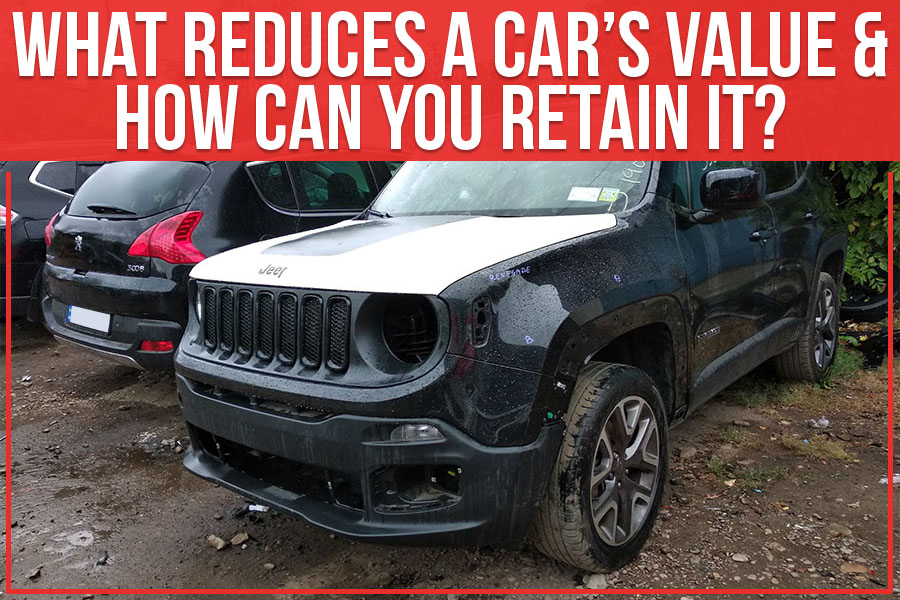
Key Takeaways:
- Cars depreciate as they age, but you can slow down the depreciation process.
- Proper maintenance keeps your car’s value from dropping as much as it would otherwise.
- Modifications, such as engine upgrades and a paint job, can hurt your car’s value.
- Window tinting may keep your car cool and protect the upholstery, but it will also diminish the value of your vehicle.
- Dents, scratches, and rust can diminish your car’s worth.
- Parking in a covered parking lot whenever possible will help protect your car from the elements and further damage.
- Ensure routine servicing and maintenance to retain its value.
- Wash and wax your car regularly to protect the paint job and keep the exterior looking shiny and new.
Cars depreciate as they age. But you can slow down this process and keep your car’s value from dropping as much as it would otherwise. This post will explore several things that reduce a car’s value and, more importantly, how you can retain your car’s value. We will also discuss tips for keeping your car looking and running like new for as long as possible!
How to Reduce a Car’s Value
Numerous things can speed up the depreciation process of your car. Here are some of them:

Accidents
Even a fender bender can reduce your car’s worth. And if the accident is more serious, the value of your car will drop even more. Insurance companies also take accidents into account when they determine how much to pay out for claims. Accidents not only reduce your car’s value but can also increase your insurance rates. Accidents are considered to be a high-risk activity by insurance companies. So, if you want to keep your car’s value high and your insurance rates low, it is best to avoid accidents.
Aftermarket Modifications
If you have made modifications to your car, such as a new paint job or an engine upgrade, this can also reduce the value of your car. These modifications can be expensive to undo, so potential buyers may not be willing to pay as much for a car that has been modified. Another thing you must avoid is window tinting. Window tint can be a great way to keep your car cool in the summer and protect your upholstery from fading, but it can also diminish your car’s worth.
Small Dents and Rust Spots
Dents, scratches, and rust spots are inevitable over time, but they can also take away a big chunk of your car’s value. These imperfections can be expensive to repair, making your car look less visually appealing. If you want to keep your car’s value high, it is important to regularly inspect it for any small dents or rust spots and have them repaired as soon as possible. Park in a garage or covered parking lot whenever possible to avoid small dents and rust spots. This will shield your vehicle from the elements and reduce the chances of it getting damaged by debris.
Lack of Maintenance (or No Maintenance Records)
This is especially true for luxury cars. If you own a luxury car, keeping all routine maintenance and repairs records is imperative. This will show potential buyers that you have taken good care of the car and that it has been regularly serviced. If you don’t have routine maintenance records, it will be hard to prove that you have taken good care of the car. This can lead to a lower offer from a potential buyer. So, save your maintenance records if you want to retain your car’s value.
High Mileage
A car with high mileage has been driven a lot and is likely to need more repairs. This can make potential buyers wary of buying the car, as they will be concerned about its longevity. So, keep the mileage low if you want to retain your car’s value. To do this, use your car less often. If you have a second vehicle, use it for errands and short trips instead of your primary car. This will help keep the mileage low on your primary car, which will, in turn, help retain its value.
Check out our blog post about how to tell if it’s time for a new car.
How to Retain Your Car’s Value
Ensure Regular Servicing and Maintenance
Ensure that your vehicle receives regular servicing and maintenance according to the manufacturer’s schedule. It means keeping up with oil changes, tune-ups, and other scheduled appointments. It will keep your vehicle in optimum condition and help you avoid costly repairs.
Wash and Wax It Regularly
To ensure that your car shines, wash and wax it regularly. This will help protect the paint job and keep the exterior looking shiny and new. It’s important to be gentle with your car’s finish and avoid using harsh chemicals or abrasives. Also, clean the interior of your car frequently. This will help keep it tidy and prevent the build-up of dirt and debris that can damage the upholstery or carpeting. Vacuum the floors and seats – wipe down all the hard surfaces with a soft, damp cloth.
Take Care of Your Tires
Tires provide traction and stability and play a big role in fuel economy. So, it’s imperative to care for them and ensure they are always properly inflated. Check the air pressure regularly, and don’t forget to rotate them every few months. This will help to distribute wear evenly and prevent any premature balding or damage. Investing in high-quality tires designed to last is also a good idea. They may be pricey upfront, but they’ll save you money in the long run by eliminating the need for frequent replacements.
Keep Your Paint Job in Tip-Top Shape
Your car’s paint job is the first thing people notice, so it’s important to keep it looking its best. It means washing and waxing regularly and taking care of any chips or scratches as soon as they happen. By taking good care of your paint job, you’ll help retain your car’s value and keep your car looking like new for years. It’s also important to safeguard your car from the elements. Ensure to wash off any salt or dirt that could damage the paint job as soon as possible. Also, park in covered or garage parking to avoid sun damage, bird droppings, and other hazards.
Conclusion
Regular maintenance, protection from the elements, and taking care of any damage as soon as it happens will allow you to preserve your car’s worth. With good care, you’ll be able to enjoy your ride for years and even get a good return on your investment if you decide to sell.
Feldman CDJR of Woodhaven, serving Taylor, MI, is a reputable dealership that stocks premium new Chrysler cars. We have a great reputation for providing excellent customer service. Our dealership is also known for our competitive prices and our convenient location. Visit us today!
Lease Or Finance? Considering Your Next Car!
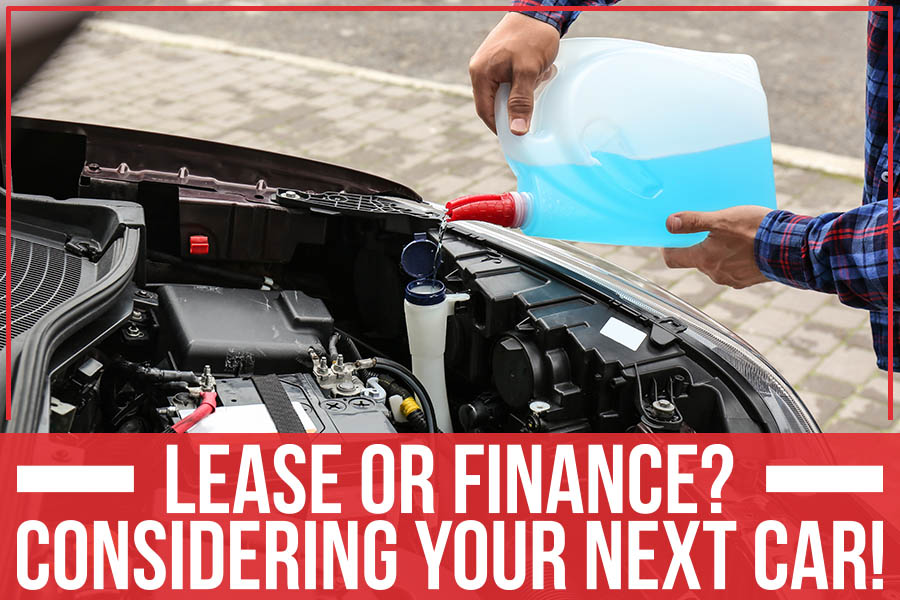
Key Takeaways:
- Leasing vs. financing a car is a big decision.
- Consider your needs and budget before making a decision.
- Talk to your financial consultant if you’re unsure which option is best for you.
- Feldman CDJR of Woodhaven, serving Detroit, MI, can help you figure out which option is best for you!
So, you’re hunting in the market for a new car. Congrats! It’s an exciting purchase, but it can also be daunting, especially if you don’t know where to start. Should you lease your car or finance it? What are the benefits of each option? How do you know which is right for you?
Don’t worry – Feldman CDJR of Woodhaven will help break it down for you. Below, we explain the key differences between leasing and financing and give you a few tips on determining which option is ideal for your needs. Keep reading to learn more!
Car Financing: All You Need to Know
Alright, let’s start with financing your car. Auto finance has been the choice for most car owners in the United States for years. Let’s explore what it entails:
What Is Car Financing?
When you finance your car, you’re essentially taking out a loan to cover the cost of the vehicle. You’ll make monthly expenses on the loan until it’s paid off, at which point the car will be yours.
There’re a few different types of loans you can take out to finance your car. The most common is an auto loan, a personal loan used to finance a car purchase. You can also finance your car through a dealer by taking out an auto loan from them or using a home equity line of credit (HELOC).
What Benefits Do I Get If I Go with Car Financing?
There’re a few things to consider when deciding whether car financing is the best option for you.
- One of the most significant benefits of financing your car is that it allows you to build equity in the vehicle. As you make payments on your loan, you’ll slowly but surely own more and more of the car until it’s eventually yours outright.
- Another big benefit of financing a car is that it can help improve your credit score. If you hand out your payments on time and in full each month, you’ll begin to create a positive payment history, which is one of the key factors lenders look at when considering your creditworthiness.
- Finally, financing a car gives you the flexibility to sell or trade in your vehicle at any time without worrying about any early termination fees that might come with leasing.
What Are The Disadvantages Of Car Financing?
Of course, you should be aware of a few potential drawbacks to financing a car before making your decision.
- One of the biggest disadvantages of financing your ride is that you could end up owing more than the vehicle is worth if you have to sell it or trade it in before you fully repay the loan. This is because, as you make your loan payments, the interest you owe will decrease, but the principal balance will decrease much more slowly.
- Another disadvantage of financing a car is that getting approved for a loan can be difficult if you have bad credit. This is because lenders see people with bad credit as higher-risk borrowers, so they may be less likely to back them for a loan.
- If you do decide to finance a car, make sure to shop around for the best interest rate and terms that you can find. It’s also important to read the fine print of your loan agreement carefully before signing anything.
Car Leasing: All You Need To Know
Alright, now let’s talk about leasing a car. This mode of car purchase has recently become popular, keeping in mind that the car leasing market boosted to USD 75 Billion in 2021 – It’s worth discussing.
What Is Car Leasing?
Well, contrary to popular belief, leasing a car is not the same thing as renting one. When you lease an automobile, you’re essentially borrowing it from the dealership or car company for a set period. You make monthly payments during this time, but you don’t own the car outright at the end of the lease.
What Benefits Do I Get?
Now, you might be wondering why a person would want to lease a car if they don’t own it in the end. And that’s a valid question. But there’re actually quite a few benefits that come with leasing a car.
- For one, leasing a car is often cheaper than financing one outright. This is because you’re only paying for the portion of the car’s value you use during your lease. You’re not responsible for the entire value of the vehicle.
- Leasing a car can also be a good option if you like to have the latest and greatest model every few years. Since leases only last for a set time (usually two to four years), you can trade in your old leased car for a new one at the end of your lease.
The Drawbacks Of Leasing a Car
Of course, there’re also a few downsides to leasing a car.
- For one, you never actually own the vehicle. This means you can’t sell or trade it for its full value when you’re done with it.
- You’ll also have to be cautious about how many miles you put on the car. Most leases come with mileage limits (usually between 10,000 and 15,000 miles per year) and charge extra fees if you exceed that limit.
- Leasing a car can also be more expensive in the long run than financing one outright. This is because you’re only paying for a portion of the car’s value and will have to get another lease when your current one expires.
Which Option Is Best for Me?
If you’re unsure about leasing or financing your next car, consider these factors:
- How long do you plan to keep the car? Leasing might be the ideal option if you only need it for a few years.
- Do you put a lot of miles on your car? If you go across the mileage limits in your lease, you could end up paying extra fees.
- Are you careful with your belongings? You may have to pay for damages at the end of your lease if the car is returned in less than perfect condition.
- Do you like having the latest & greatest? Auto leasing allows you to upgrade to a new car model every few years.
- Do you have a steady income? You’ll need to make sure you can afford the monthly payments if you finance a car.
If you’re unsure whether to lease or finance your next car, consider speaking with a financial advisor. They can help you figure out which option is best for your needs.
Here’s How Feldman CDJR of Woodhaven Can Help You!
Feldman CDJR of Woodhaven, serving Detroit, MI, is here to answer all your questions about car leasing and financing.
We want to make sure you’re getting the best deal on the perfect car for your needs, so feel free to give us a call or stop by our dealership. We’ll be happy to help you figure out which option is best for you!
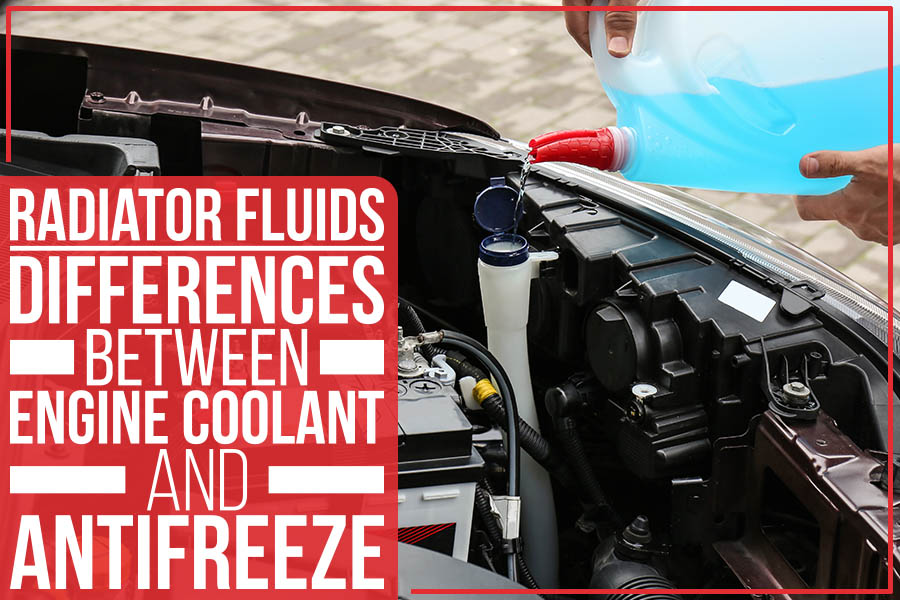
Key Takeaways:
- Engine coolant and antifreeze are presumed interchangeable terms, but they refer to two different fluids.
- If you live in a cold climate, use antifreeze in your car’s cooling system.
- IAT antifreeze is less expensive and more widely available, but it doesn’t last as long as OAT antifreeze.
- OAT antifreeze costs more, but it lasts longer.
- Coolants keep a car’s engine from overheating.
One important fact to understand when maintaining your car is the difference between engine coolant and antifreeze. Many people end up using the terms as a single item, but they are two different products. Engine coolant helps keep your engine running at a consistent temperature, while antifreeze helps protect your engine from damage caused by freezing temperatures. This post will discuss the differences in detail. Remember, even though they are different products, they serve the same purpose, i.e., protecting your engine.
How are the Engine Coolant and Antifreeze Made?
The ingredients in engine coolant and antifreeze can vary depending on the manufacturer. In general, though, both products contain ethylene glycol. Ethylene glycol is a type of alcohol that lowers the freezing point of water. This substance is poisonous to humans and animals, so it’s important to keep it away from children and pets.
To this alcohol base, manufacturers add different chemicals to give the coolant or antifreeze additional properties. For example, some products contain silicates. Silicates help to protect the engine from corrosion. Other products might contain Borates which also protect against corrosion, but they also raise the boiling point of the coolant mixture.
Main Difference Simplified
Antifreeze is an ethylene glycol-based liquid. It lowers the water’s freezing point, preventing the water from turning into ice and damaging the engine. Engine coolant is a combination of water and antifreeze. The ratio of water to antifreeze in engine coolant is usually 50/50, but it can be as high as 70% water and as low as 30% antifreeze. The main difference between engine coolant and antifreeze is that engine coolant is a mixture of water and antifreeze, whereas antifreeze is an ethylene glycol-based liquid.
Some coolants come premixed with water, while others are concentrated. The advantage of the premixed coolants is that you don’t have to worry about correcting the proportions of water and coolant. The disadvantage is that they can be more expensive than the concentrated form.
Replace Your Coolant
Engine coolant does not last forever and will need to be replaced at regular intervals. The frequency depends on the type of coolant and the manufacturer’s recommendations. For example, some types of coolant can last up to five years or 100,000 miles, whereas some must be changed every 30,000 miles or so.
Why is it Important to Flush the Coolant?
Over time, the coolant can become contaminated with rust, scale, and other debris. This can clog up the radiator and cause problems with the cooling system. Suppose you do not change your engine coolant timely. In that case, it can become corrosive and damage various parts of your engine, leading to costly repairs. That’s why it’s important to flush the coolant at least once in two years.
To flush the coolant, you’ll need to drain it from the radiator and then refill it with fresh coolant. Do it yourself, or let a mechanic fix the issue. If you do it yourself, ensure you follow your car’s manual instructions. And be careful not to overfill the radiator, as this can cause problems. Follow proper coolant flush and fill procedures.
Benefits of Antifreeze
Antifreeze has many benefits, the most important of which is preventing your engine from overheating. It absorbs heat from the engine and dissipates it into the surrounding air. This keeps your engine at a constant temperature, even when working hard.
Another benefit of antifreeze is that it prevents corrosion. It creates a barrier between the metal parts of your engine and the water in which they are submerged. This protects the metal from rust and other forms of corrosion.
Finally, antifreeze can prevent your engine from freezing up in cold weather. That is because it lowers the freezing point of the water content in the coolant, which means that it takes longer for it in your engine to reach a temperature at which it will freeze.
Vital Signs That Your Car Demands a Coolant/Antifreeze Service
There are some vital signs which indicate that your car is in dire need of a coolant/antifreeze service. They are as follows:
– The temperature gauge of your car consistently rises to the hot side
– You find sweet-smelling syrup under the hood of your car
– There is rust in the coolant reservoir
– You frequently have to add coolant/water to the reservoir
– The radiator hoses are hard and brittle
– There is steam coming out from under the hood of your car
– The heater of your car is not working as efficiently as it used to
If you observe these signs, take your car for a coolant/antifreeze service. This will ensure that your car’s engine stays healthy and functioning properly.
Is the Coolant Also Known as Radiator Fluid?
The coolant in your car’s engine is also known as radiator fluid. Radiator fluid helps keep your car’s engine cool and running smoothly. It is important to regularly check your radiator fluid level and top it off if necessary.
Check out our blog and discover how to tell if your car radiator needs to be replaced.
Difference Between IAT and OAT Antifreeze
IAT, or Inorganic Additive Technology, antifreeze is the traditional type of coolant. It is made with ethylene glycol and has a sweet smell. OAT, or Organic Additive Technology, antifreeze is the newer type of coolant. It is made with propylene glycol and has a bitter taste.
Both have their pros and cons. IAT antifreeze is less expensive and more widely available, but it doesn’t last as long as OAT antifreeze. OAT antifreeze is more expensive, but it lasts longer and is less likely to cause corrosion.
Feldman CDJR of Woodhaven, serving Wyandotte, MI, is ideal for car services because we offer unmatched car care services designed to meet the needs of our esteemed customers. We have experienced auto technicians dedicated to providing the best possible service.
Our pricing is highly competitive, and we offer a wide range of financing options to make car ownership more affordable. Feldman CDJR of Woodhaven is the ideal Chrysler, Dodge, Jeep, and RAM service center for your car service needs.
Certified Pre-Owned Cars: The Perks Of Owning One!
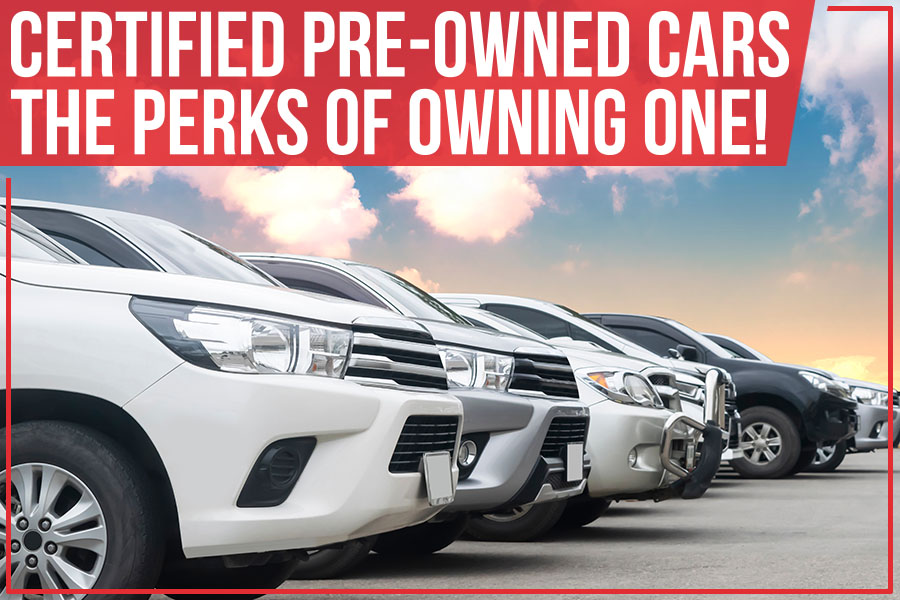
While there are some definite benefits to opting for a CPO vehicle, it’s essential to know precisely what you’re getting into. In this post, we’ll take a closer look at what makes CPO cars so appealing and debunk some myths surrounding them. So, if you’re roaming around the auto market for a used car, read on – you might be astonished by what you find!
What is a Certified Pre-Owned Car? –
A used car must first meet certain age and mileage requirements set by the manufacturer. Once the car meets the set criteria, it undergoes a rigorous inspection process by certified technicians.
The inspection team discovers all problems and repairs or replaces damaged sections using only genuine parts from the manufacturer. The car then gets a clean bill of health and is officially certified.
How Are Used Cars Different? –
Certified pre-owned cars come with a long list of benefits that are often unavailable with regular used cars. The obvious bit is the effort put into restoring these vehicles to mint conditions.
Hence, it’s obvious that some perks come attached. For example, certified cars usually have an extended warranty that gives you peace of mind if anything goes wrong with your car’s mechanical or electrical components. You also get access to exclusive financing deals and 24/7 roadside assistance.
What’s the Catch? –
Of course, all these benefits come at a cost. Certified pre-owned cars are usually more expensive than regular used cars. However, certified used cars are worth the few extra bucks; the following benefits explain why.
1. Extended Warranties –
Regular used cars don’t usually have a warranty, which means you’re on your own if something goes wrong. With a certified used car, you can rest assured knowing that help is just a phone call away.
2. 24/7 Roadside Assistance –
Roadside assistance is another exciting feature that all certified car buyers can use. This means that if you have a flat tire or run out of gas, you can give your dedicated dealership a call, and someone from their end will come to help you with your vehicle.
3. Easy Financing and Insurance –
Detailed inspections and thorough repair procedures mean insurance companies will offer lower rates on certified used cars than regular ones. In addition, certified used car dealerships often offer easy financing options to help you get behind the wheel of your dream car.
4. Better Resale Value and Lower Depreciation Rates –
Because certified cars are well-maintained, they tend to have better resale values than regularly used ones. Additionally, certified used cars often have lower depreciation rates, meaning you’ll get more money back when it’s time to sell. Once the first driver drives the car off the lot, the value of a certified used car immediately begins to depreciate at a much slower rate than a regular used car.
Certified pre-owned cars are an excellent option for anyone looking for a high-quality car at an affordable price.
Feldman CDJR of Woodhaven, serving Southgate, MI, has one of the largest collections of certified pre-owned cars in the area, so you’re sure to find the perfect vehicle for your needs.
Stop by today and explore our selection!
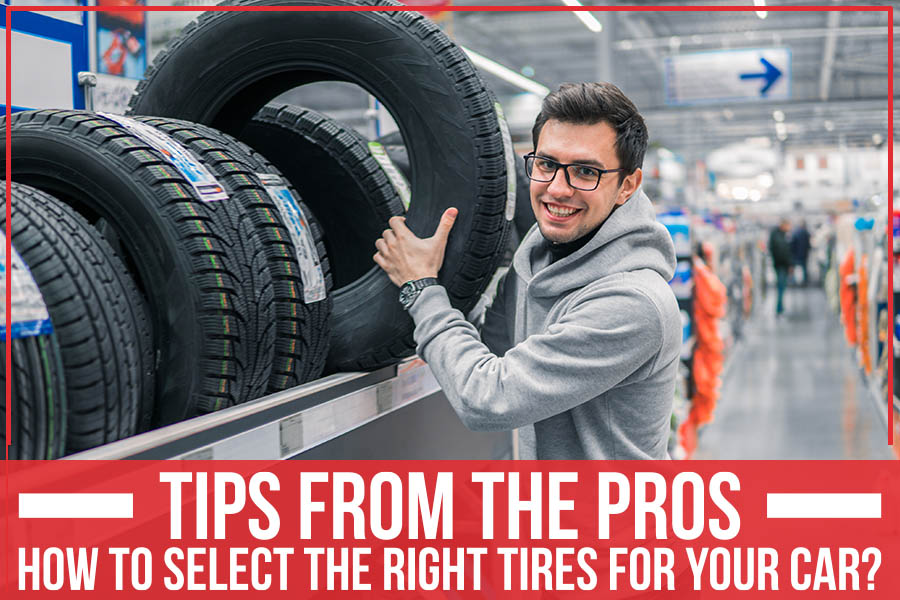
Do you direly require a new set of car tires? If that’s the case, you’re not alone! The splendid news is that there are many alternative tire choices available, so you’ll be able to discover something that meets your demands.
However, with various choices available, it can be tough to know where to start. We’ve composed this list of tips for selecting the best tires for your car. Read on for advice on everything from sizes to the best types. We hope it helps make the process a little easier!
What Are the Different Types of Tires, and Which Ones Is Best for Your Car?
One of the first things you need to consider when choosing your car’s tires is the type of tire that fits your needs. There are four main types of tires: winter, all-season, summer, and off-road.
Are All-Season Tires Best For Your Car?
All-season tires are an effective option for many drivers because they can be used year-round, regardless of the weather conditions. They provide excellent traction and can even manage light snowfall in wet and dry weather.
However, all-season tires may not be the best choice if you live in an area with severe winters or if you frequently drive in off-road conditions.
Are Winter Tires Best For Your Car?
Winter tires are essential if you live in an area with severe winters. They provide excellent traction and handling in snow and ice, making them a safer option than all-season tires.
However, it would help if you only used winter tires during the winter months – they’re not designed for use in warmer weather.
Are Off-Road Tires Best For Your Car?
Off-road tires are a good choice if you frequently drive in off-road conditions. They provide excellent traction and handling on all types of terrain, including mud, sand, and gravel.
However, they can be noisy on pavement and may not provide the best fuel economy.
What Are the Different Sizes of Tires, and Which Ones Are Best for Your Car?
There are many different sizes of tires, but not all of them will be suitable for your car. You’ll need to consider the size and weight of your vehicle and the type of terrain you’ll be driving on when selecting the right tires.
Some of the most popular tire sizes include:
17-Inch Tires:
These are the standard size for most cars and offer a good balance of comfort and performance.
19-Inch Tires:
If you want to improve your car’s handling and speed, you might opt for 19-inch tires. Remember that these can be more expensive and may cause the car to ride less smoothly.
21-Inch Tires:
The largest size available for cars, 21-inch tires can offer improved grip and traction. However, they can also be rather costly and may make the drive more difficult to handle.
If you’re unsure what size tires are the best tires for your car, consult with us. Our crew of experts can help you select the perfect tires for your vehicle!
When selecting the best tires for your car, don’t hesitate to contact the pros at Feldman CDJR of Woodhaven, serving Flatrock, MI. Our team is well-versed in all things tires and can help you find the best set of rubber for your vehicle and driving habits.
Not only that, but we also offer competitive prices on our tire selection, so you can shop with confidence knowing you’re getting a great deal. Don’t wait – browse our inventory now and see what sets us apart from other CDJR dealers near Flatrock, MI!
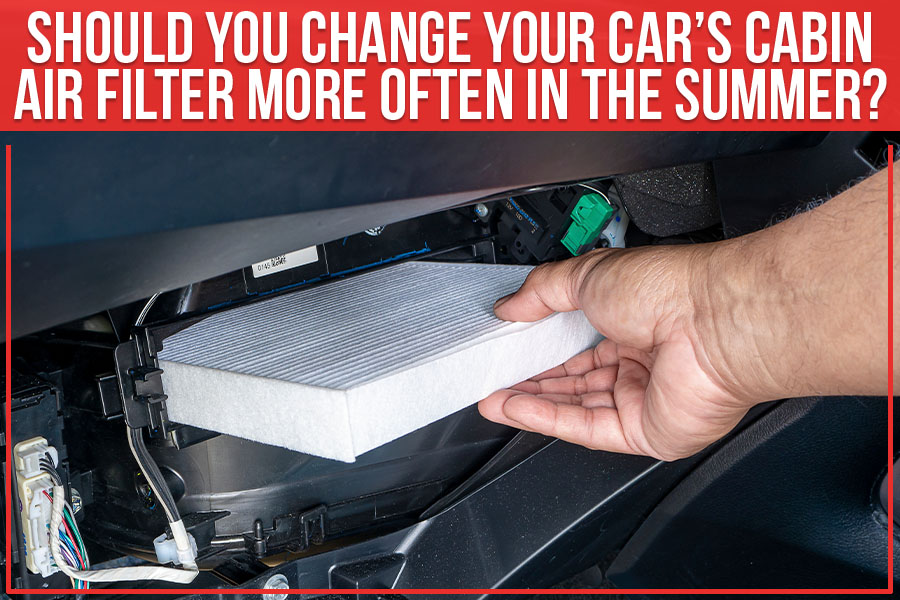
The warmer weather is a great time to get outdoors and enjoy the sun, but it can also be when your car needs a little extra TLC. One question that often comes up during the summer is whether or not you need to change your air filter more often.
In this blog post, Feldman CDJR of Woodhaven will explore the answer to that question and offer tips on keeping your car running smoothly all season long.
Should I Change The Cabin Air Filter in Summer?
In a nutshell, yes, you should change your air filter more often during summer. Here’s why:
Reason 1 – The Heat
During the summer, temperatures can rise to extreme levels. A clogged engine air filter can cause the engine to overheat, leading to many issues, including decreased performance, reduced fuel efficiency, and even damage to the car’s engine itself. To avoid these problems, it’s important to ensure that your car’s air filter is clean and unobstructed to do its job properly.
Reason 2 – The Dust
Another reason to change your air filter more often in the summer is the increased dust in the air. The dust can affect both the air quality in the engine & the car’s cabin – dirty engine filters can reduce airflow to the engine, leading to decreased performance and fuel efficiency, while a dirty cabin filter will make your car smell moldy & dusty.
So, if you live in an area with a lot of dust or if you do a lot of driving on dirt roads, it’s a good idea to change your air filter more often during the summer months.
Reason 3 – AC Works Harder in The Summer
The air conditioner in your car works harder in the summer, leading to increased moisture levels inside the cabin. This moisture can cause the cabin air filter to become damp, which can reduce its efficiency. In addition, if the air filter gets wet, it can grow mold and mildew, reducing airflow to the engine and causing damage to the system.
So, if you use your AC a lot in the summer, it’s a good idea to change your air filter more often.
Reason 4 – More Pollen in The Air
During the summer months, there is more pollen in the air than at other times. If you have allergies, this can be a problem. Pollen can clog up all filters, reducing the airflow to your engine, straining the HVAC, and causing damage.
So, if you have allergies or live in an area with a lot of pollen, you should change your air filter more often during summer.
Here’s How Feldman CDJR of Woodhaven Can Help!
Feldman CDJR of Woodhaven, serving Gibraltar, MI, is your one-stop shop for all your automotive needs! We have a wide & impressive selection of cars, trucks, and SUVs to choose from. We also offer a variety of car services, including air filter changes.
So, if you need your air filter changed or any other automotive service, schedule a service appointment today!
6 Completely Wrong Ways To Drive In The Rain

When it rains, it can get tough to drive. Should you use your brakes more? What about the accelerator? Use these tips to stay safe on the roads when it’s wet. Just remember: keep calm and carry on! Driving in the rain doesn’t have to be a hassle – follow these simple tips, and you’ll be good to go.
Don’t Drive on the Sides.
Modern roads are raised in the middle. This means that water settles on the sides during rainstorms. The difference between the road’s middle and sides may be marginal, but it could be enough to send your car into deep puddles if you’re not careful when driving to the sides.
Don’t Use Your Cruise Control.
When driving in the rain, it’s best to avoid using cruise control. If you hit a puddle of water, your car could hydroplane. During hydroplaning, your vehicle’s tires lose contact with the road, which can be hazardous. If you need cruise control, ensure you drive below the speed limit.
Switching Off the Headlights
The car’s headlights are a key partner on this challenging journey. Many drivers think they need to switch off their headlights while driving in the rain, but this is not true. It would help if you had your headlights even during the daytime when it rains.
Not Slowing Down
One of the most important driving tips is to slow down when the roads are wet. Speed limits are based on driving conditions when the roads are dry. When it rains, however, the streets become more slippery, and it becomes harder to brake. Giving yourself extra time to stop is essential, especially if the traffic is moving slowly.
Don’t Drive Through a Flooded Street.
We know these stunts sound cool in the movies but driving through a flooded street is one of the riskiest driving mistakes you can make. A few inches of water is enough to damage your car’s engine. When driving in the rain, always look for signs warning of a flooded street ahead.
Not Taking Care of Your Windshield Wipers
Your windshield wipers are one of your car’s most important safety features. When they’re not working correctly, it’s difficult to see through the rain, which can lead to accidents. Always ensure your wipers are in good condition before driving in the rain.
Even if you think you know how to drive in the rain, there are a few things you might be doing wrong. Here at Feldman CDJR of Woodhaven, serving Trenton, MI, we help drivers stay safe on the roads and avoid costly repairs. If you’ve been driving through puddles of water or battling hydroplaning, it’s time for a service session. Schedule an appointment with us today and let our team take care of your car maintenance and repair needs.
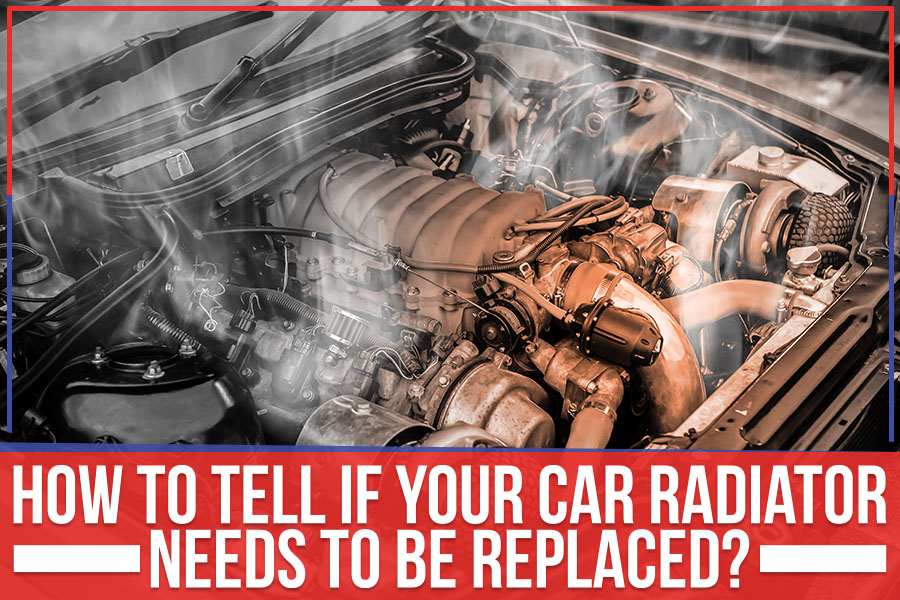
A broken radiator can be a death wish in the sweltering summer heat. You can be stranded on the road with boiling water sputtering from under the hood and no chance for your air conditioner to save you. Could a fully-functional automobile radiator prevent it from happening?
An automobile radiator is a device used to transfer heat from the engine to the surrounding air. The radiator consists of a series of metal fins interconnected by a series of tubes. The coolant, a mixture of water and antifreeze, flows through the radiator and helps keep the engine cool.
However, your automobile radiator may show signs of wear and tear after years of use. It is essential to be able to identify these signs so that you can replace the radiator before it fails. Here are a few bad car radiator signs to look out for:
1. Overheating Car Engine:
A car engine performs optimally at specific temperatures. To be exact, the ideal operating temperature for a car engine is between 195- and 220-degrees Fahrenheit. An automobile radiator dissipates heat to maintain this temperature.
However, when the radiator gets clogged or leaks, it may not be able to dissipate heat as efficiently. As a result, your car engine will start to overheat.
Of course, there are other reasons your car engine may overheat, but a failing automobile radiator is one possibility. If your car engine temperature is rising higher than usual, you need to replace your radiator.
2. Discolored Car Coolant:
The green (sometimes orange or pink) liquid circulating through your automobile radiator and the engine is called coolant. Over time, it becomes discolored due to rust, scale, and other contaminants.
If you notice your coolant has changed color, it’s a sign your car needs radiator flushing. Radiator flushing is a car radiator cleaning procedure that removes all the rust, scale, and other contaminants.
However, if your coolant is frequently changing color, your only solution will be to replace the radiator. Otherwise, the rust and other contaminants will cause engine damage.
3. Radiator Leaks:
Have you often found small puddles of liquid beneath your car? If the fluid is clear, it’s probably just water from your air conditioner. However, if the liquid is green, yellow, or rusty colored, it’s most likely coolant from your car. It could be leaking from the radiator, hoses, or engine.
A coolant leak is the most common cause of overheating because it reduces the amount of coolant available to do its job.
A small radiator leak probably won’t cause much harm to your car. However, the coolant will eventually run out if the leak isn’t fixed. When this happens, your engine will overheat and be damaged – that’s a serious sign that you need to replace your radiator.
Conclusion:
Radiator flushing, car radiator cleaning, and radiator hose sealing are only temporary solutions to a much bigger problem. If your automobile radiator is continually leaking, it’s time to replace it. The same goes for a radiator with corroded fins or bent and damaged fins.
Our experts at Feldman CDJR of Woodhaven, serving Southgate, MI, can help you properly assess your radiator’s condition and make the best decision for your car.
Schedule an appointment today, and let us help you eliminate your car overheating worries for good!
How To Tell When It’s Time For A New Car
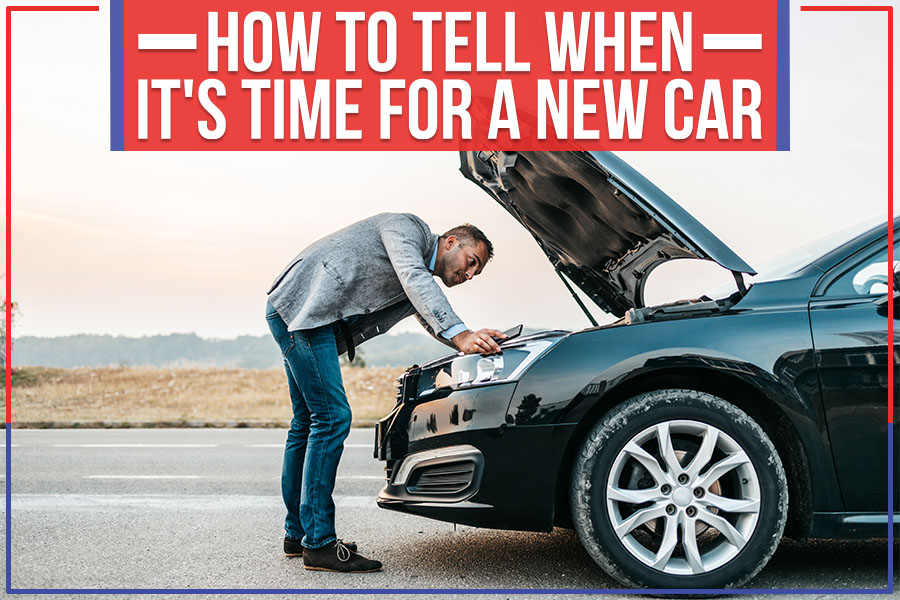
So, you’ve been driving the same car for a while, and you’re starting to think it might be time for a new one. But how can you know for sure? Is there a way to tell if your car is on its last leg?
In this post, Feldman CDJR of Woodhaven will explore some signs that it’s time to say goodbye to your old ride and hello to a new car. Stay tuned!
How Do I Know When It’s Time for a New Car?
Alright, so you think you might need a new car. But how can you be sure? Below, we’ll go over some of the most common signs that it’s time for an upgrade.
1. Your Car is Constantly in Need of Repairs
One of the most obvious signs that it’s time for a new car is if your current vehicle constantly needs repairs. If you notice yourself shelling out money for a new part or fix every other month, it might be an ideal time to start looking into something else. Not only does this get expensive, but it can also be dangerous driving around in a car that isn’t up to par.
2. You’re Unable to Complete Your Daily Tasks in Your Car
If your car is no longer able to complete the tasks you need it to do daily, then it might be time for an upgrade. For example, if you have a growing family, but your car only has two seats, it will be tough to haul everyone around. Alternatively, perhaps you’re frequently driving in the snow, but your car doesn’t have the appropriate tires to handle the conditions. You could be putting yourself in danger.
3. Your Car is No Longer Safe
Following the earlier point, another sign that it’s time for a new car is if your current vehicle is no longer safe. This can mean a lot of different factors depending on the make and model of your car. However, some common examples include outdated safety features, excessive wear and tear, or recalled parts.
4. Your Ride is Costing You Too Much Money
Not only do you have to pay for gas, car insurance, and regular maintenance, but you also have to budget for the occasional big repair. If your car costs you more money than it’s worth, it might be time to get a new one.
5. You’re Tired of Your Current Car
Even if your car is running just fine, you might be ready for something new. Maybe you’re sick of how it looks or ready for an upgrade. If you’re tired of your current car, it might be time to start shopping for something new.
Let Feldman CDJR of Woodhaven Help You Out!
Feldman CDJR of Woodhaven, serving Flat Rock, MI, is the top dealership in the area for a reason. We stock a huge arsenal of new and pre-owned vehicles, so you’re sure to find something that suits your needs. And our team gear heads will help you every step of the way, from locating the perfect car to getting it financed.
Please stop by today or give us a call and let us help you get into the car of your dreams!








